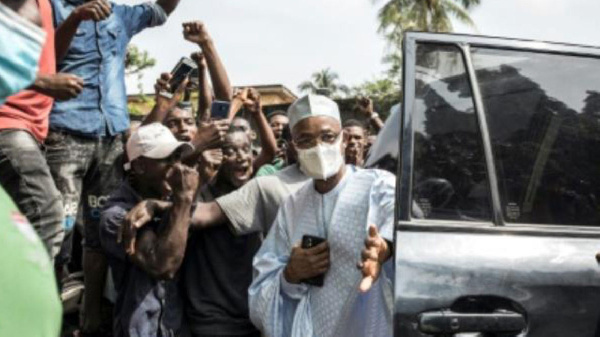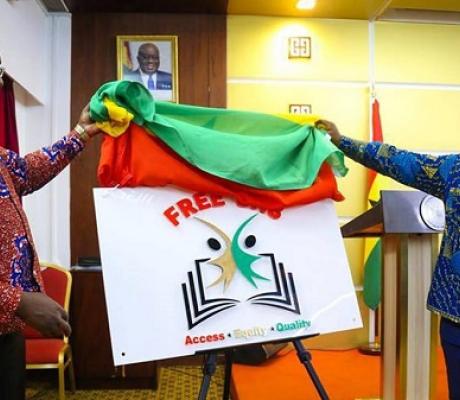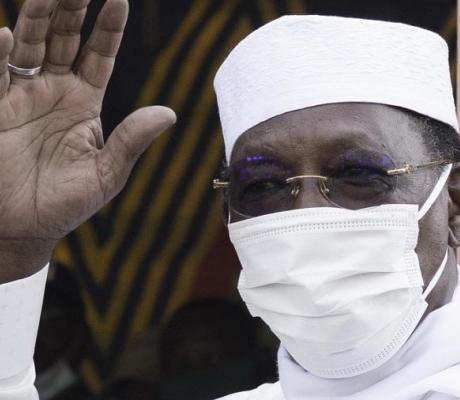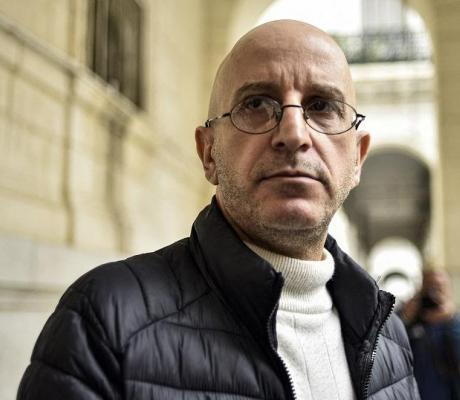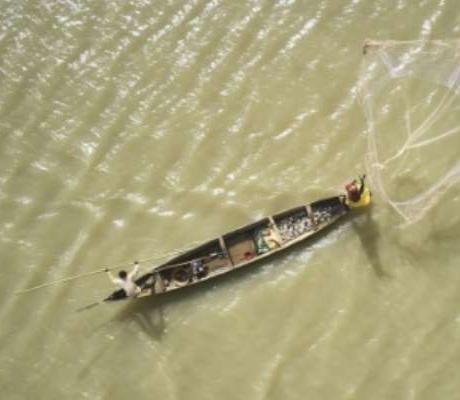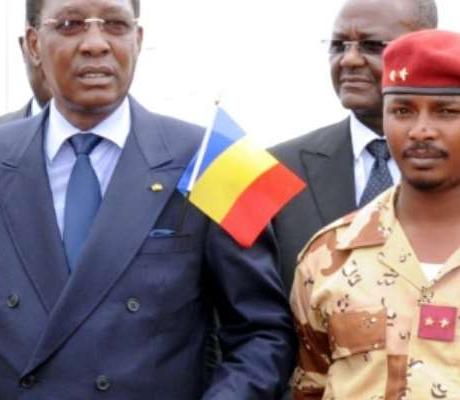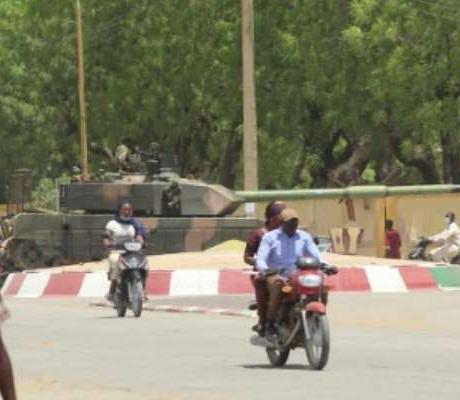Tensions remained high in Guinea on Tuesday, after a night of unrest sparked by an opposition claim to victory in an election against President Alpha Conde, who is seeking a controversial third term.
The West African state's main opposition leader, Cellou Dalein Diallo, announced Monday that he had won the hotly contested October 18 poll without waiting for the official results.
"I invite all my fellow citizens who love peace and justice to defend this democratic victory," he had declared.
But Conde's camp rejected the self-proclaimed win, and joyous celebrations from opposition supporters in the capital Conakry quickly descended into violent clashes with security forces.
Diallo, 68, tweeted on Monday night that security forces had fired into a crowd and shot dead "three boys", leaving several wounded. He blamed Conde for the "crimes".
Guinea's government did not confirm the deaths. An AFP journalist saw three injured people and heard gunfire in a Conakry suburb on Monday night.
'Irresponsible and dangerous'
The unrest follows months of protests against a potential third term for 82-year-old President Conde in the poor former French colony, during which dozens of people were killed.
Although the polling day was mostly calm, Diallo's self-proclaimed election victory has set the stage for a showdown with Conde.
The government insists the vote was fair and that only the official electoral authority can declare the results, which are due within a week.
Conde's RPG party also called Diallo's move "irresponsible and dangerous" on Monday.
The international community is concerned too. The United Nations, African Union, and the 15-nation West Africa bloc ECOWAS, called the premature declaration of results "regrettable", in a joint statement on Monday.
"This state of affairs is not conducive to preserving calm," the statement said.
Bakary Mansare, the vice-president of Guinea's electoral authority, told AFP that Diallo's self-proclaimed victory was "null and void".
Signs of a looming electoral dispute had already surfaced during the vote, when Diallo told reporters that Conde could "cheat" his way to power.
Twelve candidates are vying for the presidency, but Conde and Diallo are the frontrunners.
'Chaos'
Ousmane Gaoual Diallo, a member of Diallo's UFDG party, said that results from individual polling states were public, enabling the party's own observers to conduct a count.
"If we are the winners, we will defend our victory," he said. "We won't wait."
But the government said in a statement Monday that the opposition "clearly intended to create chaos and to call into question the real results".
Much of Guinea's current tension stems from President Conde's controversial bid for a third term.
He pushed through a new constitution in March which he argued would modernise the country. But it also allowed him to bypass a two-term limit for presidents, provoking mass protests.
After decades as an opposition activist, Conde became Guinea's first democratically elected president in 2010 and won again in 2015, but rights groups now accuse him of veering towards authoritarianism.
Diallo was formerly a prime minister under authoritarian leader Lansana Conte.
He unsuccessfully challenged Conde in both 2010 and 2015, in elections his party activists are convinced were rigged.
Before vote counting began on Sunday, Diallo's activists said their observers had been obstructed at polling stations and alleged ballot-box stuffing.
Prime Minister Kassory Fofana said that the opposition publishing results ahead of the official results was tantamount to pouring "oil on the fire".
Mansare, from the electoral authority, said Guinea should publish provisional results within a week.
Second round
Guinea's acrimonious political campaign saw Conde and Diallo trade insults, and was marked by violent incidents in some parts of country.
But it also raised the spectre of ethnic strife, with Conde accused of exploiting divisions for electoral ends -- a charge he denies.
Guinea's politics are mainly drawn along ethnic lines: the president's base is mostly from the ethnic Malinke community and Diallo's from the Fulani people.
A second round of voting, if needed, is scheduled for November 24.
Source: AFP

